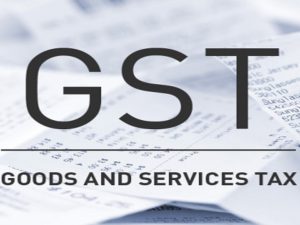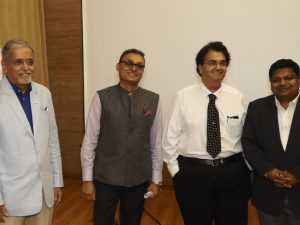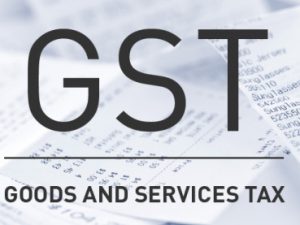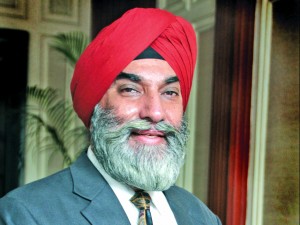Centre has announced reduction in GST (Goods and Services Tax) on a total of 23 goods and services. Under the new rates, air travel of pilgrims by non-scheduled/charter operations, being facilitated by the government under bilateral arrangements, will attract a lower GST rate of 5 per cent. This would include pilgrimages like Mansarovar Yatra, the Haj, and the Pashupatinath tour. These tours are usually done by chartered and non-scheduled flights, and will now be cheaper under the new GST rates. Earlier, tours through chartered flights attracted 18 per cent GST.
Read More »Yatra launches self-booking corporate travel solution for SMEs
Strengthening its corporate travel segment, Yatra.com has launched a self-booking platform for Small and Medium Enterprises (SME) providing corporate customers with comprehensive and convenient travel solutions. Dhruv Shringi, Co-founder and CEO, Yatra.com says, “Yatra’s latest self-booking platform significantly reinforces our position in the large and growing corporate travel market in India. The platform will revolutionise the way business travellers search and book flights and hotels, ultimately saving both time and money in the process.” The newly launched, easy to use online platform includes a range of enhanced features which will empower the SMEs to automate their process to fulfill end-to-end travel business needs. SMEs shall get curated hotel options, best corporate deals and nil to economical cancellation and rescheduling charges. The Goods and Services Tax (GST) complaint system will allow the user to search through a range of flight and hotel options as per the company travel policy and follow the in-built trip approval process to seek their supervisor’s approval. They shall also have access to real time Management Information System (MIS) reports to enable them to monitor their travel expenses. Furthermore, the invoices will be instantly mailed to the registered email ID. There is also a 24×7 support helpline available for support required on visas, passports, and other offline requests. Using this platform, SMEs can manage their company and employee profiles, travel policy compliance, and approval workflow. “We believe that this technological advanced platform will empower SMEs to control their travel needs, while at the same time making it inherently easier for their employees to make bookings in an easy and convenient manner,” Shringi added.
Read More »GST on all restaurants down to 5% from earlier 18%
Hotels and restaurants have welcomed the government’s move to reduce Goods and Services Tax on all restaurants from earlier 18 per cent to now 5 per cent. Dilip Datwani, President, Hotel and Restaurant Association of Western India (HRAWI), said, “Reduction of GST rate to 5 per cent for all restaurants has come as a pleasant surprise. This is a big boost for the industry which has been reeling under a slowdown for quite sometime. Now irrespective of whether the restaurant is air conditioned or not, the consumer will have to pay a uniform GST rate of 5 per cent. This will definitely encourage the consumer to eat out again. “However, denying the ITC benefit on the grounds that we have not been passing on benefits is unfair. As of now, none of our vendors have reduced prices and there has not been any reduction of prices in raw materials for us. In fact, post introduction of GST the costs of operations and raw materials have actually gone up. The move to remove ITC amounts to double taxation and is inflationary. It also goes against every tenet of ease of doing business. We wish that the GST Council had considered that rent and interest attract 18% GST. However, overall we welcome the developments. We understand that something as revolutionary as GST will bring some disruptions in the initial stages. We just hope that going forward, Input Tax Credit will be restored,” he added.
Read More »Online travel agents liable to deduct TCS under GST: CBEC
Travel agents providing online ticketing and other services will be liable to deduct one per cent tax at source under the GST regime as they have been classified as e-commerce operators, the CBEC said. Under the Goods and Services Tax (GST) regime, an e- commerce operator is required to collect 1 per cent of the net value of taxable supplies made through it. The amount so collected is called tax collected at source or TCS but this provision has been kept in abeyance for the time being. Online travel agents have been classified as e-commerce operators (ECO) and so they have to deduct TCS. The Central Board of Excise and Customs (CBEC), in a fresh set of frequently asked questions (FAQs), said the TCS requirement would not apply to someone selling own products through a website. Only applicable GST for the goods would be levied in that case. Electronic commerce or e-commerce means supply of goods or services, including digital products, over elect .. electronic network and an e-commerce operator is a person who owns operates or manages the electronic platform for e-commerce, it said. “Online travel agents providing services through digital or electronic platform will fall under the category of ECO (e- commerce operator) liable to deduct TCS under Section 52 of the CGST Act, 2017,” the CBEC said.
Read More »TAAI hosts GST session for its members in Mumbai
Travel Agents Association of India (TAAI) hosted a session on Goods and Services Tax (GST) for its members in Mumbai. Service Tax expert CA Manish Gadia from GMJ & Co gave an insight on how GST will come into play. TAAI has initiated GST training sessions in cities such as Kolkata, Ahmedabad and now Mumbai. Revealing more is Jay Bhatia, Hon. Treasurer & Tourism Council Chairman, TAAI. “By June 30, we plan to complete these sessions in all the 20 cities across the country where TAAI is present. Subsequently by July-August we will have detailed session as the government gives more clarity on GST. Currently, we are not happy with the GST rates and we will be making representation through FAITH to the government which is definitely going to be reviewed by the government but as of now the current intention of the government is to implement GST from 1st of July. Once it is implemented we have assurance from the government that they will look into the issues faced by agents and take the right steps,” he said. Sampat Damani, Chairman – Western Region, TAAI, commented, “Although we received notifications from the government but still a lot of things are not clear. With GST being very complex we see tourism and hospitality industry getting a big hit. Like demonetisation we may see day to day changes by the government which will be a chaos for the next 6-8 months. We were supposed to go into a paperless scenario but here with 37 returns to be filed annually we are taking a step backward instead of going forward.”
Read More »GST Council levies 5% rate on tours
The Government of India’s GST Council finalised the tax rates on services under the Goods and Services Tax (GST) regime at their meeting held in Srinagar, Jammu & Kashmir. The GST regime is scheduled to kick-in from July 1, and the council has approved the GST rates for services at Nil, 5%, 12%, 18% and 28%. According to the current rate, the 5% rate of GST will be levied on transport of passengers by rail (other than sleeper class); transport of passengers by air in economy class; transport of passengers with or without accompanied belongings, by air, embarking from or terminating in a Regional Connectivity Scheme Airport; as well as supply of tour operators’ services. There is 12 per cent GST rate levied on transport of passengers by air in other than economy class. These rates will be further subjected to vetting and would undergo some changes.
Read More »FAITH recommends 12% GST to Finance Ministry
The Federation of Associations in Indian Tourism and Hospitality (FAITH) has suggested an upper GST rate of 12 per cent for the tourism and hospitality industry and handed its detailed recommendations to the Ministry of Finance. The industry comprises of air travel agents, business exhibition services, hotel and hospitality services, tour operators, rent a cab and vacation ownership. The representation has been made considering strategic forex, employment, economic and GST rationale and rates for tourism, travel and hospitality sector of India. An upper limit of 12 per cent has been suggested for hotels and hospitality and vacation ownership segment. For the air travel agents the recommendation was given to continue presumptive rate on all income and keep GST at 1 per cent or less. For the tour operators, FAITH requested to introduce a presumptive rates mechanism of GST at 1.2 per cent considering difficulty of getting GST input credits from unorganised sector and the burden of compliance of registration with different states. It has been requested to exempt outbound tour operators and business exhibitions selling outbound from India from GST since provision of services are out of India. In the case of rent a car, a GST rate of 5 per cent has been suggested failing which, maximum 12 per cent has been deemed acceptable. FAITH has urged for a special GST exemption on forex income for tour operators, hotels and businesses earning forex if it can be a criteria with MoF for GST. Addressing the adventure tourism industry, FAIH has requested MoF to consider special GST exemption based on J&K and a very high component of local, unorganised labour involved.
Read More »OTOAI touches 407 member mark
The Outbound Tour Operators Association of India (OTOAI) has crossed the 400 members mark till now and is aiming at 30 per cent growth in membership. The association that 407 registered members called on them to stand united on the issue of Goods and Services Tax (GST). “We would like to stand together for GST. I would request all our members to come together and make suggestions regarding that. We don’t have much time in hand for this and GST is a big deal,” said Guldeep Singh Sahni, President, OTOAI, said during the 4th Annual General Meeting (AGM) of OTOAI. The main agenda of the AGM was to present the accounts for this year. The association also discussed that it is going to work closely with its partner DMCs and NTOs. Sahni said, “We will try to benefit our partner NTOs and enhance their product development for our customers.”
Read More » Tourism Breaking News
Tourism Breaking News






